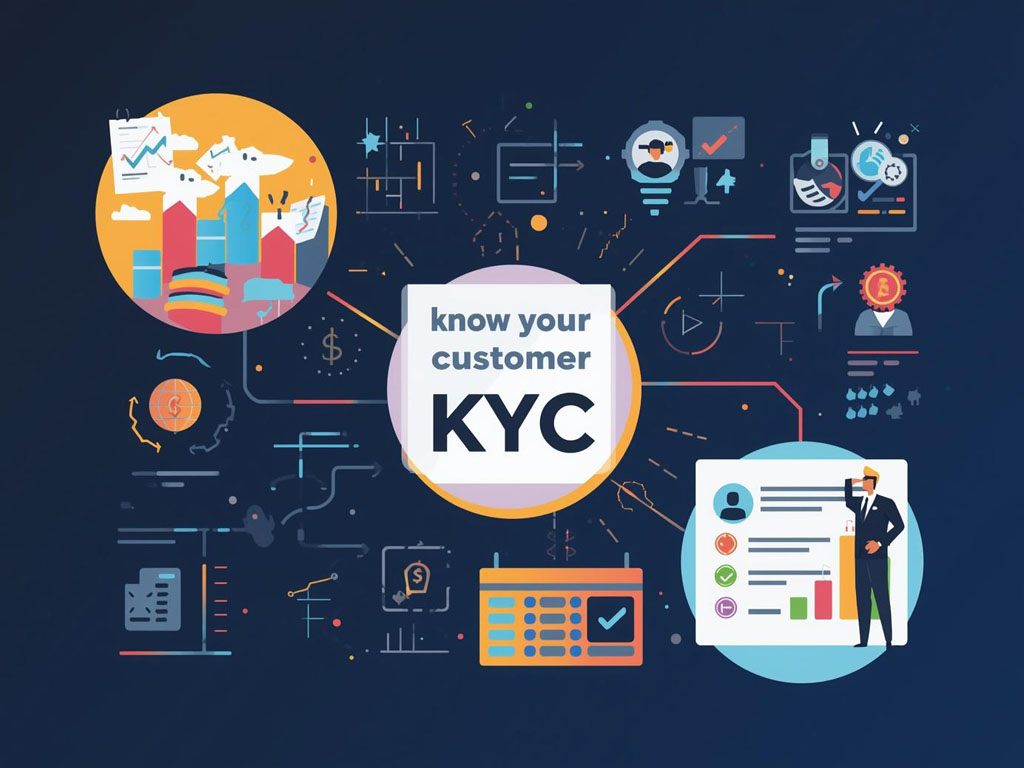Today, as online banking, cryptocurrencies, and financial services grow rapidly, data security and fraud prevention have become top priorities. One of the main tools for protection is KYC verification – the “Know Your Customer” procedure. In this article, we’ll explain in detail what KYC is, why it’s important, and how the identity verification process works on different platforms.
What Is KYC Verification
KYC (Know Your Customer) is an international customer verification standard that requires companies to identify users before providing services. The purpose of this procedure is to prevent money laundering, terrorist financing, and fraud. In other words, KYC verification means a platform must make sure its client is a real person and not a fake entity.
Why KYC Is Needed
KYC is essential for:
- complying with international AML/CFT regulations (anti–money laundering and combating the financing of terrorism);
- protecting businesses from risks and fines;
- increasing user trust in the service;
- preventing fraud in banks, crypto exchanges, and other platforms.
For example, what is KYC on Binance? It’s a mandatory step for traders that allows Binance to confirm your identity before granting access to its full functionality.
Stages and Process of KYC
Typically, the KYC process consists of several steps:
- Collecting personal data – full name, date of birth, and contact information.
- Uploading documents – passport, ID card, or driver’s license.
- Photo confirmation – a selfie with the document or video verification.
- Address verification – a utility bill or bank statement.
- Sanctions screening – checking against blacklists and PEP (politically exposed persons).
Types of KYC
There are different levels of verification:
- Basic (Simplified KYC): minimal data, suitable for small transactions.
- Standard: full identification for medium and large amounts.
- Enhanced Due Diligence (EDD): an in-depth review for higher-risk clients.
KYC in the Cryptocurrency Industry
The world of digital assets heavily depends on transparency. That’s why KYC in crypto has become mandatory on almost all major exchanges.
- On Binance, Kraken, or Coinbase, completing KYC gives you access to withdrawals and higher limits.
- The procedure is similar to banking: you need to provide documents and verify your identity online.
How KYC Works in Online Services?
Modern platforms use automated solutions:
- mobile apps for scanning passports or ID cards;
- facial recognition technologies;
- live video verification with an operator.
This approach speeds up the process and reduces the chance of errors.
Benefits of KYC for Businesses and Users
For businesses:
- reducing the risk of financial crimes;
- ensuring compliance with regulations;
- building a reputation as a reliable service.
For users:
- secure access to services;
- protection of funds and personal information;
- easier future transactions.
Challenges and Issues of KYC
Despite obvious benefits, there are certain challenges:
- protecting privacy and personal data;
- the cost for companies to implement verification systems;
- the need to regularly update compliance policies.
Conclusion
KYC verification is a key to safety in modern financial and online services. It helps platforms comply with international standards and protect customers from fraud. By completing the “Know Your Customer” procedure, you gain access to reliable services and peace of mind about the security of your personal data.



